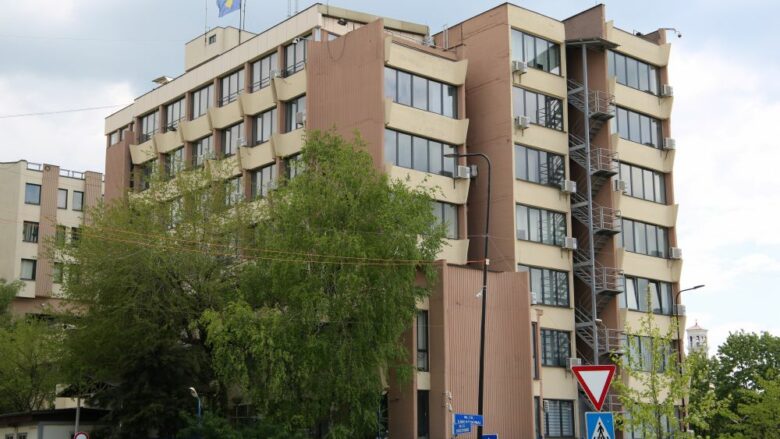The Special Prosecution of Kosovo (SPRK) is making maximum efforts to file indictments by the end of this year for the Reçak massacre, the Dubrava Prison massacre, and the deportation of Albanian civilians from Kosovo.
To ensure a more efficient handling of war crimes cases, the SPRK is advocating for the implementation of international standards, including the adoption of a special law and the creation of a dedicated judicial body to process these cases domestically.
Reçak Investigations Concluded, Serbia’s Cooperation Crucial
Ilir Morina, Head of the War Crimes Department within the SPRK, stated in an interview with KosovaPress that his unit has been significantly consolidated over the past four years. The special prosecutor emphasized that investigations for one of the largest massacres, Reçak, have already been completed within Kosovo’s territory.
However, Morina highlighted that the main challenge remains securing material evidence located in Serbia, including records from the former International Criminal Tribunal for the former Yugoslavia (ICTY). He stressed that the lack of cooperation from Serbian authorities makes it impossible to obtain this crucial evidence.
Morina also announced that an indictment is expected soon for the deportation of Albanian civilians from Kosovo, describing it as one of the largest cases the prosecution is handling.
“For the Reçak massacre, we have opened investigations, we have developed investigations concerning the territory of Kosovo, we have carried out all the required procedural actions. Now half of the evidence, or the most important evidence for this case, is located in Serbia, at the former international court for ex-Yugoslavia, now called the Residual Mechanism. Unfortunately, we need to strengthen cooperation with these institutions. With Serbia, we have no cooperation at all, and thus it is impossible to obtain concrete material evidence. We are making maximum efforts to secure that evidence so that by the end of this year, we can file the Reçak indictment. We are working and expect very soon to conclude the case of the deportation of the civilian population; the expulsion is one of the biggest cases this prosecution is developing, we expect an indictment for that case within this year. We have identified a multitude of cases we are working on and expect to conclude some of them within this year,” he said.
Dubrava Massacre and Challenges with Evidence
For the Dubrava Prison massacre, where over 117 Albanian prisoners were killed and 300 wounded during the war, investigations are ongoing. While a first-instance court acquitted one accused individual, 400 out of 700 anticipated witnesses have been interviewed. The SPRK aims to file an indictment for this massacre as a whole within this year, even if in absentia, as all defendants are not currently in Kosovo.
“Investigations are ongoing… the case as a whole is still in progress, and we expect to conclude it very soon… We are making efforts to complete the Dubrava massacre case within this year and file an indictment in absentia, as all defendants are not located in Kosovo, at least as far as the police have been able to verify. However, a lot of work is required; 700 witnesses have been identified, each of whom must be interviewed. So far, the police have reached up to 400 of them… We have great hope that we will increase cooperation with the former international criminal tribunal for ex-Yugoslavia in The Hague and secure some important material evidence regarding command responsibility in this specific case,” Prosecutor Morina emphasized.
Progress and Calls for Judicial Reform
Since 2021, the War Crimes Department within the SPRK has filed a total of 37 war crimes indictments, including 12 for trials in absentia. Morina highlighted that this is a significant number compared to 19 indictments by international organizations over 20 years. In 2023 alone, 15 indictments were filed for 63 individuals, and in 2024, 14 indictments for 25 individuals, plus one indictment for 53 people concerning the Meja massacre. In the first three months of 2025, four indictments were filed against 6 individuals. In total, there are 14 indictments in absentia, plus 12 inherited from international missions, bringing the total to 26 indictments.
Morina believes that not enough has been done to build the professional capacities of judges handling war crimes cases. He stressed the need for a specific legal framework and a special judicial body solely dedicated to these crimes. A key challenge, according to him, is the acceptance of old evidence from 1999, 2000, or 2001 in criminal proceedings, which depends on court decisions.
“In the last five years, we have received authorizations from international missions, we have had continuous efforts to raise the professional capacities of police officers and prosecutors, but as far as I have observed, much less for judges, and in the end, all the work we do is decided by judges. Therefore, the focus should also be on judges, to raise their professional capacities in applying international standards. We demand a specific legal framework solely for war crimes, and in terms of structure, we demand a court, a department, and a unit that deals only with war crimes. In terms of the legal framework, we continue to emphasize that while the majority of international states have special laws for war crimes, we prosecute war crimes with the Criminal Procedure Code, which is general for terrorism, corruption, and organized crime. A challenging standard that may arise in this case is whether a statement given in ’99, or 2000, 2001, will be accepted by a Kosovo court as evidence in a criminal procedure,” the special prosecutor explained.
Morina emphasized the need for the judicial system to follow international standards in these cases, especially regarding witness statements. He also highlighted the need to increase the number of special prosecutors and support staff in his department, which currently has only five special prosecutors, with only one handling sexual violence cases.
Last week, the judicial process for the Meja massacre began, involving 53 accused individuals, with the trial being held in absentia due to the unavailability of the defendants.
In the last war in Kosovo, over 13,000 civilians were killed or massacred, 20,000 women and men were sexually violated, and over 1,600 forcibly disappeared persons are still missing.







